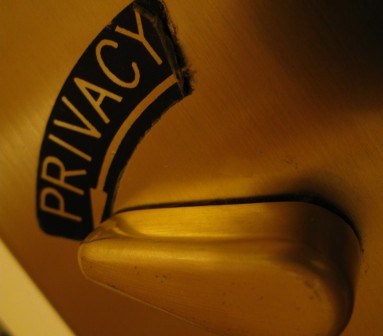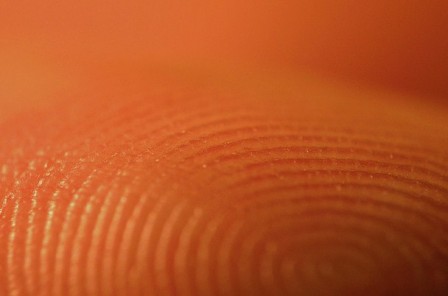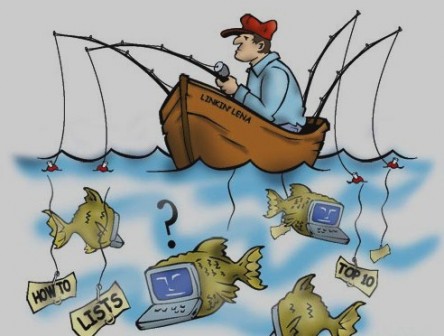Wake Up People: Your Life is an Open Book
NEWS JUNKIE POST
Jun 12, 2012 at 12:32 am Without warning, Microsoft, long considered the prince of evil for all things on the Internet, recently decided to be the good guy when it comes to protecting individual privacy on the Web. Microsoft added a Do Not Track embed to version 10 of its Internet Explorer browser. When someone uses it, it tells advertisers not to track him or her at every Web site they visit. In other words, the Internet Explorer browser user now has a way of making sure he or she can turn off cookies if that person prefers not to allow an outsider to capture every move he or she makes on the Web. A person who cares, uses Internet Explorer, can now decide who they want to track them, and then share and use that information culled from their busy social media lives. Understand. I have no brief for Microsoft. But as one of the most powerful players in the online universe, this latest effort for it to be socially responsible has the muscle to affect every one of us.
Without warning, Microsoft, long considered the prince of evil for all things on the Internet, recently decided to be the good guy when it comes to protecting individual privacy on the Web. Microsoft added a Do Not Track embed to version 10 of its Internet Explorer browser. When someone uses it, it tells advertisers not to track him or her at every Web site they visit. In other words, the Internet Explorer browser user now has a way of making sure he or she can turn off cookies if that person prefers not to allow an outsider to capture every move he or she makes on the Web. A person who cares, uses Internet Explorer, can now decide who they want to track them, and then share and use that information culled from their busy social media lives. Understand. I have no brief for Microsoft. But as one of the most powerful players in the online universe, this latest effort for it to be socially responsible has the muscle to affect every one of us.
 In creating its new Do Not Track button, Microsoft has angered The Digital Advertising Alliance, the major association of digital Internet advertisers, marketing and media companies. Known as the DAA, it is upset for good reason when one considers that there are more than 600 million users of Windows 7 OS. DAA believes it will no longer have complete access to who, what and where you are on the Web and beyond if some of those people decide to use the Do Not Track icon. The DAA is probably frightened over the possibility that the 600 million will opt out simultaneously and they will lose all that free information about what a person does or does not like. Just imagine the ensuing wail that will erupt though the digital hallways of DAA. Though not likely to happen, it is crybaby talk. For too long the DAA and its members have been getting a free ride with its unbridled collection of what ordinary humans believe is private information. Microsoft’s decision to create its Do Not Track button still leaves the choice to use the new key up to the individual user. There is no saying people will decide to use the new icon.
In creating its new Do Not Track button, Microsoft has angered The Digital Advertising Alliance, the major association of digital Internet advertisers, marketing and media companies. Known as the DAA, it is upset for good reason when one considers that there are more than 600 million users of Windows 7 OS. DAA believes it will no longer have complete access to who, what and where you are on the Web and beyond if some of those people decide to use the Do Not Track icon. The DAA is probably frightened over the possibility that the 600 million will opt out simultaneously and they will lose all that free information about what a person does or does not like. Just imagine the ensuing wail that will erupt though the digital hallways of DAA. Though not likely to happen, it is crybaby talk. For too long the DAA and its members have been getting a free ride with its unbridled collection of what ordinary humans believe is private information. Microsoft’s decision to create its Do Not Track button still leaves the choice to use the new key up to the individual user. There is no saying people will decide to use the new icon.
 Lest we forget, every browser including Firefox, Safari and Chrome, to name a few, allows the user to kill the cookies he or she does not want to track them. A person can preserve his or her privacy by using the privacy setting on any browser to protect him or herself from prying eyes. If you want privacy, do not be lazy. Lift your hand, use a finger and press a key that will wipe away the cookie collected by an outsider during your time online. To repeat: It does not take much to protect yourself, if you are strong enough, in touch with the reality of the Web and not overly lazy. I have a message for all of you naive social media addicts, especially those who use Facebook. Do not think for a moment that because it is now a public company that your privacy has the protection it never had before the IPO that made Mark Zuckerberg and his friends rich beyond anyone’s imagination. I see to protect themselves that many on Facebook are writing notes that say that they are private. By saying it, they believe –wrongly– that protects their lives from intrusion. As if a few words will protect their privacy. These are meaningless statements.
Lest we forget, every browser including Firefox, Safari and Chrome, to name a few, allows the user to kill the cookies he or she does not want to track them. A person can preserve his or her privacy by using the privacy setting on any browser to protect him or herself from prying eyes. If you want privacy, do not be lazy. Lift your hand, use a finger and press a key that will wipe away the cookie collected by an outsider during your time online. To repeat: It does not take much to protect yourself, if you are strong enough, in touch with the reality of the Web and not overly lazy. I have a message for all of you naive social media addicts, especially those who use Facebook. Do not think for a moment that because it is now a public company that your privacy has the protection it never had before the IPO that made Mark Zuckerberg and his friends rich beyond anyone’s imagination. I see to protect themselves that many on Facebook are writing notes that say that they are private. By saying it, they believe –wrongly– that protects their lives from intrusion. As if a few words will protect their privacy. These are meaningless statements.
 The philosophy of privacy is, however, oddly meaningless to many people. It is generational. The younger one is, the less privacy has meant to them – until now. Suddenly, they do not want their lives revealed to anyone, especially those I call cookie stealers — the ones who process the data they collect from cookies. Algorithms have always been tracking and collecting your personal data. Algorithms make no distinctions about your privacy concerns. To utter, as some are across the spectrum of social media are doing, especially on Facebook, that persons unknown “are hereby prohibited from using, distributing, disclosing, copying etc.,” has the same effect as if you were shouting down a bottomless pit.
The philosophy of privacy is, however, oddly meaningless to many people. It is generational. The younger one is, the less privacy has meant to them – until now. Suddenly, they do not want their lives revealed to anyone, especially those I call cookie stealers — the ones who process the data they collect from cookies. Algorithms have always been tracking and collecting your personal data. Algorithms make no distinctions about your privacy concerns. To utter, as some are across the spectrum of social media are doing, especially on Facebook, that persons unknown “are hereby prohibited from using, distributing, disclosing, copying etc.,” has the same effect as if you were shouting down a bottomless pit.
 People give up all privacy the moment they sign on to a social media site. They are under a microscope and always will be as long as they allow the browser they use to easily track and distribute to interested parties everything they do online. Submissive is the operative word that defines most everyone who uses social media as his or her clubhouse. Don’t forget that those supposedly innocent apps you place on your mobile devices also allow advertisers to collect every bit of information about you and then use that information to sell you products you either do not want, and never heard of or surely never expected to hear about. Social media has almost everyone hooked. Sadly, those many millions are beyond help.
People give up all privacy the moment they sign on to a social media site. They are under a microscope and always will be as long as they allow the browser they use to easily track and distribute to interested parties everything they do online. Submissive is the operative word that defines most everyone who uses social media as his or her clubhouse. Don’t forget that those supposedly innocent apps you place on your mobile devices also allow advertisers to collect every bit of information about you and then use that information to sell you products you either do not want, and never heard of or surely never expected to hear about. Social media has almost everyone hooked. Sadly, those many millions are beyond help.
Editor’s Note: Photograph one by Rob Pongsajapan. Photograph two by Kevin Dooley. Photograph three and illustration five by o5com.
Related Articles
- February 7, 2012 Facebook IPO: An Open Letter to Mark Zuckerberg
- April 27, 2012 Want to Lose All Privacy and Personal Security? There’s Apps For That
- March 12, 2012 SOPA: A Pox on Both Houses
- October 28, 2013 Kafkaesque World of Data Mining by the NSA, Search Engines and Social Media
- January 13, 2013 Tribute to Aaron Swartz: Information Guerrilla Warrior
- August 5, 2011 Privacy: Fading Fast












You must be logged in to post a comment Login